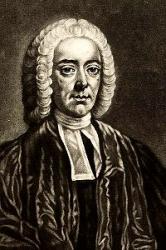1750 - 1826 Hymnal Number: 33 Author of "Saints with pious zeal attending" in Social Psalmist Taylor, John, born July 30, 1750, was the son of Richard Taylor, of Norwich, and grandson of Dr. John Taylor (1694-1761, the eminent Hebrew scholar, who was for many years minister of the Octagon Chapel, Norwich, and afterwards Divinity tutor at the Warrington Academy. Dr. Taylor published A Collection of Tunes in Various Airs, one of the first collections of its kind, and his grandson was one of the most musical of Unitarian hymn-writers). Young Taylor, after serving his apprenticeship in his native place, was for two years in a banking house in London, at which time he was an occasional poetical contributor to the Morning Chronicle. In 1773 he returned to Norwich, where he spent the rest of his life, first as a manufacturer, and afterwards as a wool and yarn factor. For nearly fifty years he was a deacon at the Octagon Chapel. At the time of the French Revolution he joined in the support of The Cabinet, a periodical brought out by the Liberals of Norwich, in conjunction with Dr. Enfield, William Taylor, Miss Alderson (Mrs. Opie), and others, and, as a "poet of the olden time," he contributed five poems thereto. These, and other political songs and poems relating to family events, &c, together with 50 hymns, were collected in Hymns and Miscellaneous Poems, Reprinted for Private Distribution, 1863, with a Memoir taken from the Monthly Repository of Sept. 1826, by his son, Edward Taylor, then Gresham Professor of Music. An earlier and less complete edition, containing 43 hymns, he had himself caused to be printed by his sons, Richard and Arthur Taylor, London, 1818. He died June 23, 1826. Of his hymns the following 9 were contributed to Dr. Enfield's Selection of Hymns for Social Worship, Norwich, 1795:—
1. Far from mortal cares retreating. Divine Worship.
2. Father divine, before Thy view. Divine Providence.
3. Father of our feeble race. Christian Love. This begins in Horder's Congregational Hymns, 1884, and others, with st. ii., "Lord, what offering shall we bring?"
4. Glory be to God on high. Divine glories celebrated. The first stanza is by C. Wesley, and the rest are by Taylor.
5. God of mercy, God of love [grace], Hear our sad repentant song. Penitence.
6. 0 sing to the Lord a new song. Praise to the Supreme Ruler and Judge.
7. Praise to God, the great Creator. Praise to the Father. The hymn "Saints with pious zeal attending" in Hatfield's Church Hymns, &c.,N.Y., 1872, begins with line 4 of stanza i. of this hymn.
8. Raise your voice and joyful sing. Praise.
9. Rejoice, the Lord is King. Providence acknowledged in the Seasons. The first stanza and 11. 5 and 6 of all are by C. Wesley, and the rest are by Taylor.
J. Taylor edited Hymns intended to be used at the Commencement of Social Worship, London, 1802. To that collection he contributed 10 hymns, including:—
10. At the portals of Thy house. Divine Worship. In a few American collections a cento from this hymn is given as, "Lord, before thy presence come."
11. Blessed Sabbath of our [the] Lord. Sunday.
12. 0 how delightful is the road. Divine Worship.
13. Supreme o'er all Jehovah reigns.. Divine Worship. All the foregoing, except No. 8, were re-published in the Norwich Collectionof 1814. That edition contained 33 of Taylor's hymns. To the 2nd ed., 1826, he added 9 more. To R. Aspland's Selection of Psalms and Hymns for Unitarian Worship, Hackney, 1810, he contributed 26 hymns, old and new, including :—
14. Like shadows gliding o'er the plain. Time and Eternity.
15. The Mighty God who rolls [rules] the spheres. God the Preserver of Man.
These 15 are the best known of Taylor's hymns, and are largely found in Unitarian collections. See especially Dr. Martineau's Hymns, &c, of 1840, and of 1873. [Rev. Valentine D. Davis, B.A.]
-- John Julian, Dictionary of Hymnology (1907)
John Taylor


 My Starred Hymns
My Starred Hymns






